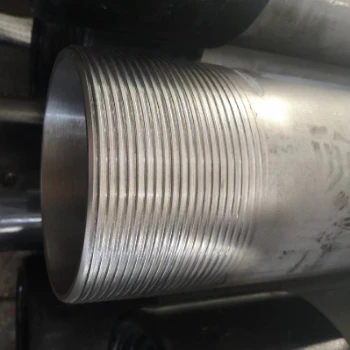- Afrikaans
- Albanian
- Amharic
- Arabic
- Armenian
- Azerbaijani
- Basque
- Belarusian
- Bengali
- Bosnian
- Bulgarian
- Catalan
- Cebuano
- Corsican
- Croatian
- Czech
- Danish
- Dutch
- English
- Esperanto
- Estonian
- Finnish
- French
- Frisian
- Galician
- Georgian
- German
- Greek
- Gujarati
- Haitian Creole
- hausa
- hawaiian
- Hebrew
- Hindi
- Miao
- Hungarian
- Icelandic
- igbo
- Indonesian
- irish
- Italian
- Japanese
- Javanese
- Kannada
- kazakh
- Khmer
- Rwandese
- Korean
- Kurdish
- Kyrgyz
- Lao
- Latin
- Latvian
- Lithuanian
- Luxembourgish
- Macedonian
- Malgashi
- Malay
- Malayalam
- Maltese
- Maori
- Marathi
- Mongolian
- Myanmar
- Nepali
- Norwegian
- Norwegian
- Occitan
- Pashto
- Persian
- Polish
- Portuguese
- Punjabi
- Romanian
- Russian
- Samoan
- Scottish Gaelic
- Serbian
- Sesotho
- Shona
- Sindhi
- Sinhala
- Slovak
- Slovenian
- Somali
- Spanish
- Sundanese
- Swahili
- Swedish
- Tagalog
- Tajik
- Tamil
- Tatar
- Telugu
- Thai
- Turkish
- Turkmen
- Ukrainian
- Urdu
- Uighur
- Uzbek
- Vietnamese
- Welsh
- Bantu
- Yiddish
- Yoruba
- Zulu
steel couplings for pipe
Steel Couplings for Pipe An Essential Component in Piping Systems
When it comes to ensuring the integrity and durability of piping systems, steel couplings play a crucial role. These fittings are designed to connect two lengths of pipe, allowing for a robust and leak-proof joint that can withstand various environmental conditions. Here, we delve into the importance, types, benefits, and applications of steel couplings in piping systems.
Understanding Steel Couplings
Steel couplings are mechanical devices that join two pipe sections together. They are typically cylindrical in shape and can be secured onto the pipe ends through various means such as welding, threading, or bolting. The primary function of a coupling is to facilitate the easy assembly and disassembly of piping systems while maintaining a strong connection that can handle pressure and flow.
Types of Steel Couplings
There are several types of steel couplings available, each serving different purposes and applications
1. Welded Couplings These are permanently fused to the pipes through welding, providing an extremely strong joint. They are ideal for high-pressure systems where leaks are unacceptable.
2. Threaded Couplings These couplings feature internal threads that allow them to be easily screwed onto the ends of pipes. They are suitable for low-pressure applications and provide the advantage of easy disassembly.
3. Clamp Couplings Also known as mechanical couplings, these connect pipes using clamps. They allow for flexibility in the piping system, making them easy to install and remove.
4. Expansion Couplings These are designed to accommodate thermal expansion and contraction in pipes, thus preventing stress and potential damage in high-temperature applications.
Benefits of Steel Couplings
The use of steel couplings in piping systems presents numerous benefits
steel couplings for pipe

- Strength and Durability Steel is known for its excellent strength-to-weight ratio and resistance to corrosion, making steel couplings an ideal choice for demanding environments.
- Versatility Steel couplings can be used in various applications, from water supply systems to oil and gas pipelines, catering to a range of pipe sizes and types.
- Leak Resistance When properly installed, steel couplings provide a tight seal that minimizes the risk of leaks, ensuring efficient and safe operation of piping systems.
- Cost-Effectiveness While the initial investment in steel couplings might be higher than alternatives, their longevity and minimal maintenance requirements make them a cost-effective solution in the long run.
Applications of Steel Couplings
Steel couplings are commonly used across diverse industries, including
- Construction They are essential in water, gas, and sewage systems, providing reliable connections that ensure the effective transportation of fluids.
- Oil and Gas In these sectors, where high pressures and harsh conditions are the norms, steel couplings help maintain the integrity of pipelines.
- Manufacturing In industrial settings, steel couplings assist in the movement of various substances, contributing to efficient production processes.
- HVAC Systems In heating, ventilation, and air conditioning systems, these couplings ensure proper airflow and temperature regulation.
Conclusion
Steel couplings are indispensable in the realm of piping systems, providing robust connections that enhance the stability and longevity of various installations. As industries continue to evolve and demand more efficient solutions, the role of steel couplings in optimizing piping systems will remain significant. Their strength, versatility, and leak-proof capabilities make them an ideal choice for engineers and designers aiming to create reliable and effective piping networks.
-
Well Casing Extension Couplings – Applications and InstallationNewsJun.06,2025
-
Types of Crossover Subs in Drilling & CompletionNewsJun.06,2025
-
Key Features of High-Quality Tubing Pup JointsNewsJun.06,2025
-
Installation and Maintenance Tips for Steel Couplings for PipeNewsJun.06,2025
-
How to Select the Right Pup Joint for Oil & Gas OperationsNewsJun.06,2025
-
Applications of Stainless Steel Pipe CouplingsNewsJun.06,2025







